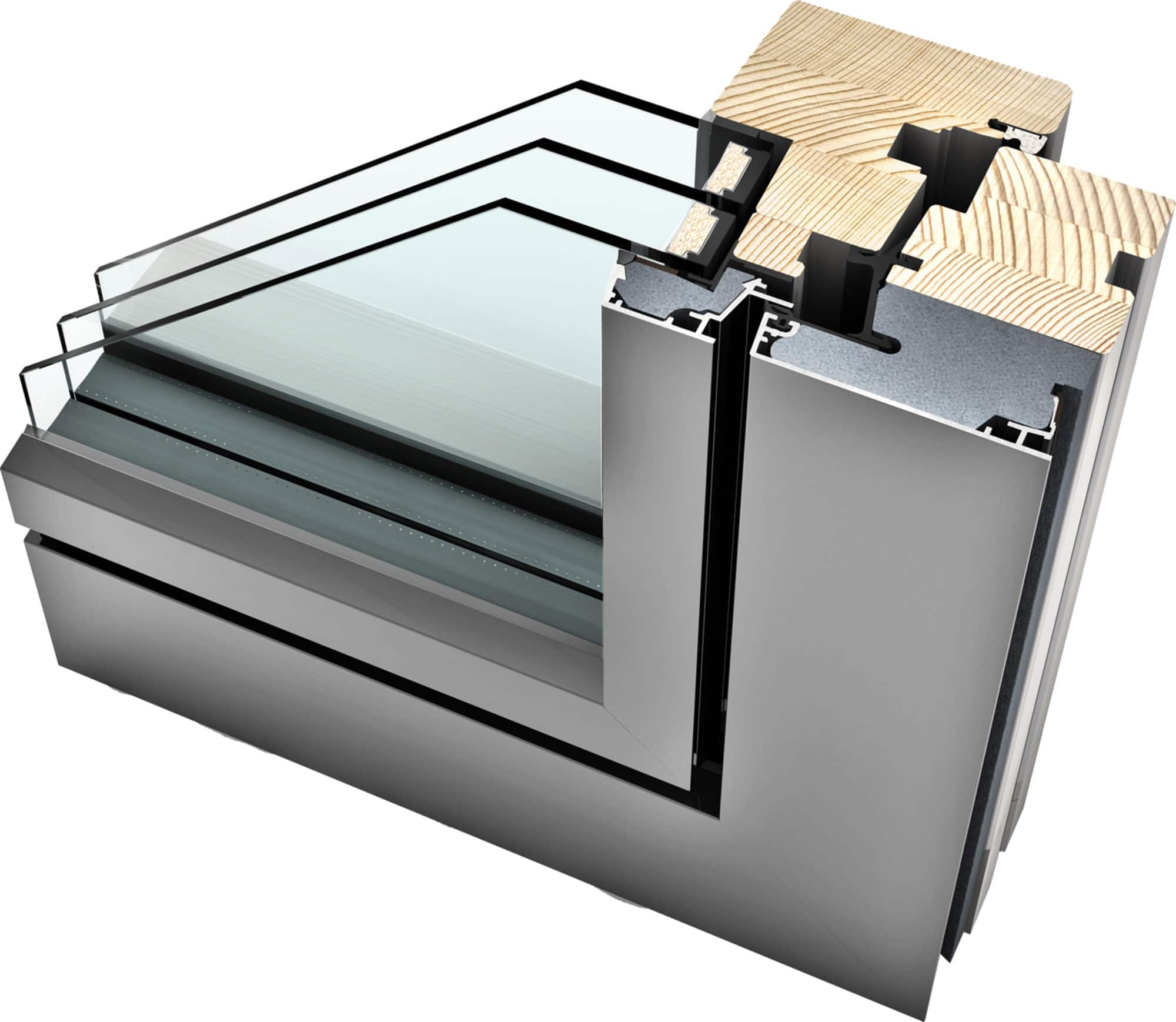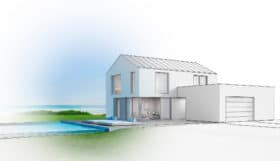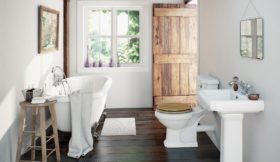
21st-22nd February 2026 - time to get your dream home started!
GET TWO FREE TICKETS HERE
21st-22nd February 2026 - time to get your dream home started!
GET TWO FREE TICKETS HEREWe all know that installing double glazing can save you money on heating bills in comparison to single glazed windows. All technology moves on, however, and we’re now onto the next evolution when it comes to energy efficiency. Triple glazing is now a mainstream choice, accounting for over 80% of all windows sold in Europe, as well as more and more high-performance home building projects in the UK. So, why should you consider it for your scheme?
As the name suggests, this type of window features three panes of glass set within a sealed frame (as opposed to two in double glazing). The gaps between the panes can be filled
with air or – more usually – a super-insulating inert gas, such as argon or krypton, to maximise performance.
You’ll find triple glazing in every style, format and opening configuration, from fixed windows through to flush and rebated casements, tilt-and-turn designs, sliding doors and more.
With more components making up the window, triple glazing natural comes in slightly more expensive than double – although the price gap is closed than you might think. And the benefits in comfort levels can be well worth the money: put simply, the setup of three glass panes and two gaps is better at keeping warmth inside your home than the single cavity used in double glazed units.
A building component’s thermal efficiency is measured as it’s U-value, with lower numbers indicating better performance. As a guide, double glazed units typically achieve a U-value of around 1.4 W/m2K, whereas a modern insulated wall would hit 0.20 W/m2K or better.
Triple glazed windows and doors bridge the gap between the two: Internorm’s HF 310 timber-aluminium versions can deliver U-values as low as 0.62 W/m2K, for instance. That’s better than the 0.8 W/m2K required by the Passivhaus eco home standard.

Internorm’s HF 310 series of alu-clad timber triple glazed windows can achieve U-values down to 0.62 W/m2K and noise reduction of 33-46dB
Not only can this contribute to lower overall heat demand, but it will also simply provide better comfort levels. In a room heated to the typical 21°C, the internal pane of a standard double glazed window will reach around 16°C. This large temperature gap can lead to draughts and condensation. With triple glazing, the internal face gets to 18°C, so these problems are minimised.
There’s another part of the equation that needs to be considered when planning windows and glazed doors, namely solar gain. With double glazing, around 62% of the warmth from sunlight will penetrate into the living environment – providing a potentially helpful boost of free heat (provided it’s properly controlled).
Most triple glazing will only allow about 50% of the sun’s heat through, although Internorm’s Solar+ coating can be applied to achieve 62% solar gain (the same as double). It will also keep more of that heat in.
Bear in mind that solar gain is very useful in winter but not so desirable in summer, when it could lead to overheating. So be sure to work closely with your designer and glazing supplier to decide on the right solutions to suit your home’s overall heating strategy.
Good-quality triple glazed windows can contribute to enhanced acoustic performance compared to double glazing, as there are more panes and airgaps for external noise to travel through.
As a rough guide, you might get 5-10dB (decibels) more sound reduction from standard triple versus standard double glazed units.This is a complicated area, however, and techniques such as using different pane thicknesses and incorporating special coatings will have a massive impact on the overall performance. So, if you live on a busy street, be sure to ask your manufacturer about the best options for your project.
| This article was written by Thomas Hagen, who is technical manager at Internorm, which specialises in windows and doors, offering a range of designs, styles and materials to ensure you find the ideal solution for your self build or renovation. |

